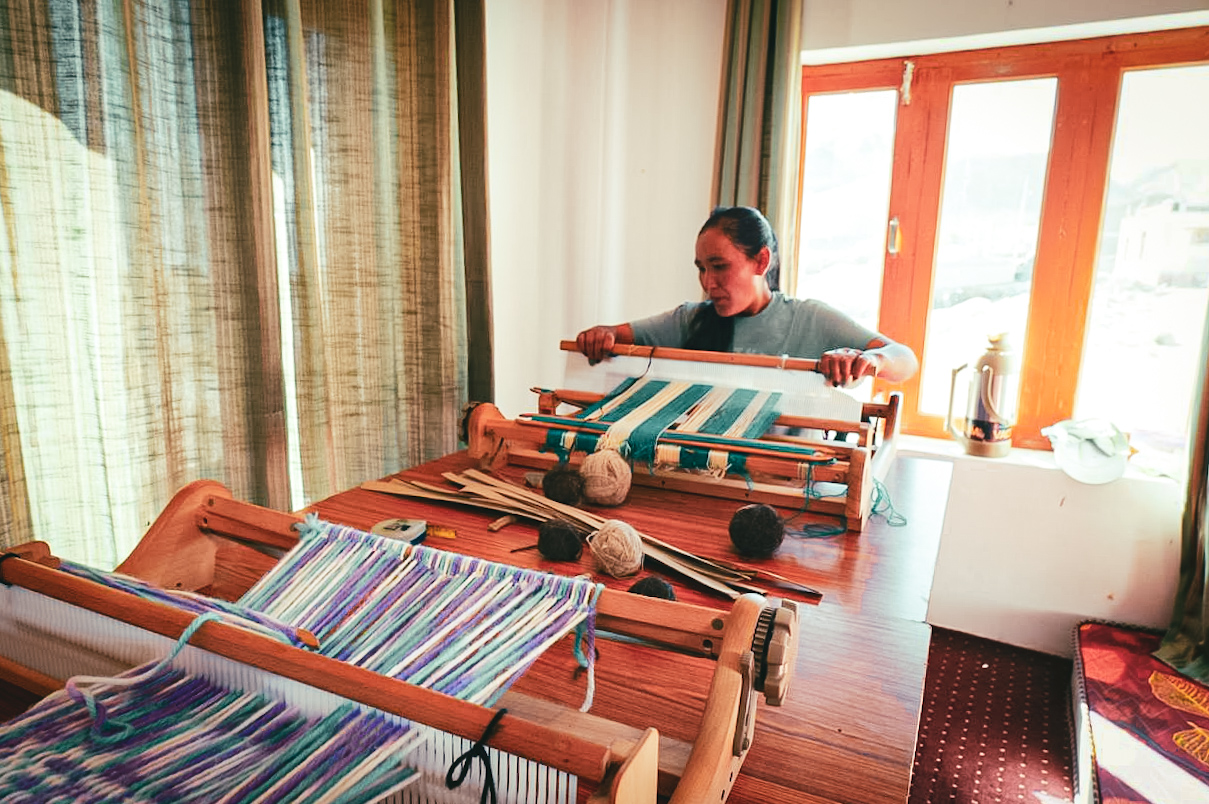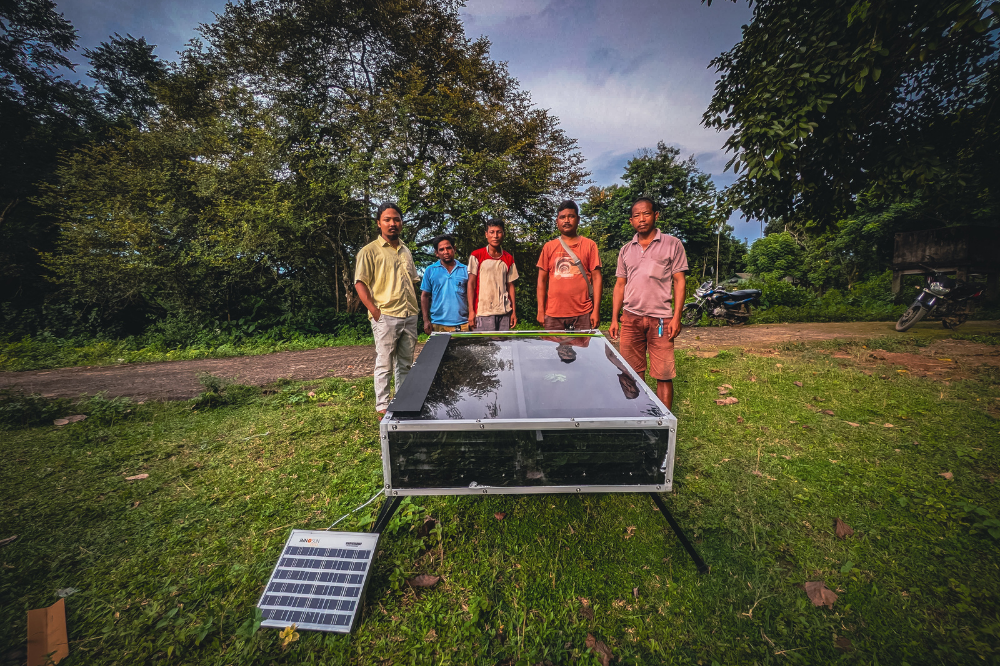Shang-Dong Wolf Traps in Ladakh
GHE Jan 29, 2026
Food Innovation Training in Garo Hills
Empowering Rural Entrepreneurs through Sustainable Processing

In the villages of the Garo Hills in Meghalaya, farming is a main source of income. People depend on their crops for daily living. Now, many are learning how to use local produce such as fruits, vegetables and spices to create small food businesses.
The Food Processing and Entrepreneurship Training Program was launched to support this idea. It invited 20 participants from nearby villages to learn simple and practical ways of turning local produce into food products like chips, pickles, candies and packaged items.
The training was fully hands-on. Participants learned to make food products, maintain freshness and understand how proper packaging improves shelf life and product appeal. Trainers also taught business skills, how to start a small enterprise, market products and use local ingredients efficiently.
By the end of the program, participants understood that simple food processing skills could help them increase income and create jobs in their own communities.

The trainer demonstrates the use and functioning of the solar dryer to participants
From Skill Development to Economic Empowerment
The sessions followed a learning-by-doing approach. Participants used locally available produce such as tapioca, gooseberry, lemon and ginger. They made products like tapioca chips, lemon candy, gooseberry murabba and ginger pickle.
Hygiene and quality were key parts of the training. For many participants, this was the first time they learned about food safety and how clean processing and packaging can help reach larger markets. The sessions showed how small food-based enterprises can increase income and strengthen village economies.
“ Previously, I sold raw ginger and lemon in small quantities. Through this training, I learned how to process and preserve them. The difference in value and confidence is remarkable.”– Silme Ch. Marak, Participant

A food processing and entrepreneurship training session in progress
Using Solar Drying for Food Preservation
A key feature of the training was the introduction of solar drying technology. This renewable energy solution helps dry crops faster, cleaner and without depending on firewood or electricity. Participants learned how to operate and maintain solar dryers, manage temperature and ensure product quality.
This is especially useful for communities that face crop losses due to rain or lack of proper drying facilities. The sessions showed how small food-based enterprises can increase income and strengthen village economies.
“Earlier, much of our dried produce was lost to rain and contamination. Solar drying has changed that. It’s faster, cleaner and sustainable,”– Siltera A. Sangma, Participant.

The trainer explains and demonstrates proper hygiene practices during food processing
Entrepreneurship and Market Integration
The program also included enterprise development and market linkage sessions, led by the Deputy Project Director of ATMA (Agriculture Technology Management Agency). Participants learned how to brand their products, manage costs, and explore digital markets such as e-NAM (National Agriculture Market).
They also learned how to design packaging, maintain quality, and connect with government schemes that support small businesses.
Results from the training:
-87% of participants plan to start a food processing unit.
-100% identified the need for continuous market and institutional support.
“We once believed our products could not compete outside local markets. Now we understand that quality, consistency and good presentation make a big difference,”– Sibong N. Ch. Sangma, Participant.

Wider Developmental Impact
The broader implications of this initiative extend well beyond individual participants. By equipping rural entrepreneurs with modern processing skills and sustainable technologies the program contributes to:
- Reduction in post-harvest losses and increased utilization of local produce.
- Diversification of income sources and enhanced financial resilience among smallholders.
- Promotion of women-led enterprises and inclusive local employment.
- Strengthening of rural value chains through improved product quality and shelf life.
- Advancement of green and circular economy models in agri-processing.
Before, I sold raw ginger and lemon in small quantities. Now, I have learned how to process and package them into products that can reach larger markets. For the first time, I feel like an entrepreneur in my own right”– Dilme D Marak , Participant

Participants take part in preparing tapioca chips as part of the hands-on training
Building a Sustainable Enterprise Ecosystem
The initiative began as a way to help rural people use what they already have, local crops and home kitchens, to start small-scale businesses.
Through practical sessions, participants learned how to cook, clean and package food products by themselves. These new skills not only help families earn more but also encourage communities to produce food safely and responsibly.
“Solar drying has changed the way we work. Earlier, half of our dried produce was lost to rain or dust. With solar dryers, the process is faster, cleaner and completely sustainable. The sun has become our most reliable business partner”– Balsil Ch Marak , Participant

Packaged food products prepared by participants during the training sessions on display
The Road Ahead
The next step focuses on market access, branding support and mentorship. Entrepreneurs will receive guidance to make their businesses financially sustainable. The program also plans to connect them with government schemes, cooperatives and agri-tech platforms to expand opportunities.
By linking skill development with entrepreneurship, the Garo Hills are moving toward inclusive and sustainable growth driven by local innovation.
“Now we understand that quality and presentation matter. With proper packaging and hygiene, even small-scale producers like us can build a name that reflects the taste and identity of Garo Hills”– Sibong Ch. Sangma, Participant

Display of a variety of processed food items created during the training program
Empowering People, Preserving Nature
The Food Processing and Entrepreneurship Training Program shows how learning new methods and using local resources can improve rural livelihoods. It helps participants turn farm produce into valuable food products, building both income and confidence.
By promoting renewable energy and responsible production, the program supports sustainable development and stronger rural economies.
Trainer Reflections
“The enthusiasm and commitment displayed by participants reaffirmed that rural potential only needs direction, not reinvention. With the right skills and mentorship, every community can become self-reliant” – Training Facilitator, Food Processing Expert
Sustainability is not a concept for them, it’s a way of life. Integrating renewable energy and entrepreneurship in rural programs is the way forward” – Deputy Project Director, ATMA

Participants engage in a practical session on making lemon candy
Each voice reflects a journey, from learning to leadership, from participation to progress. Together, they form the collective narrative of a region ready to grow through skill, innovation and enterprise. Stories like these show how local innovation and clean technology can transform rural communities. GHE continues to create opportunities that empower people and protect nature through sustainable livelihood initiatives. Learn more about our work at Sustainable Livelihoods.
Latest Blogs
Explore perspectives on the work we do and ways to make an even greater impact together.










0 Comments